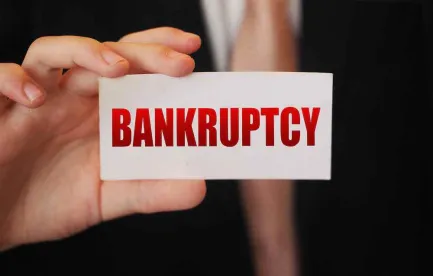The Eleventh Circuit recently affirmed the U.S. Small Business Administration’s (“SBA”) rule that makes bankruptcy debtors ineligible for a Payment Protection Program (“PPP”) loan under the Coronavirus Aid, Relief, and Economic Security Act (“CARES Act”). In its comprehensive opinion, the Eleventh Circuit determined that the SBA’s rule is not an unreasonable interpretation of the CARES Act and is not arbitrary and capricious.1 The Eleventh Circuit joins the Fifth Circuit, which similarly held in June 2020 that a bankruptcy court exceeded its authority when it required the SBA to make a PPP loan available to a debtor in bankruptcy.2
The Eleventh Circuit reversed a bankruptcy court’s finding that the SBA exceeded its authority and acted arbitrarily and capriciously when it adopted the rule. The bankruptcy court determined that the rule was unenforceable to the extent it disqualified the debtor from participating in the PPP. The bankruptcy court also issued an injunction requiring the SBA to guarantee the loan if the applicant met all other requirements (other than not being in bankruptcy) and restricting the SBA from conditioning loan forgiveness on the applicant not being in bankruptcy. The Eleventh Circuit’s analysis focused on the SBA’s authority to adopt the rule and the fact that PPP loans are subject to existing eligibility requirements for SBA loans.
The CARES Act granted the SBA emergency rule-making authority to issue regulations to carry out the PPP. At issue is the SBA’s rule that states “If the applicant or the owner of the applicant is the debtor in a bankruptcy proceeding, either at the time it submits the application or at any time before the loan is disbursed, the applicant is ineligible to receive a PPP loan.”3 The SBA’s explanation for this rule is that providing a PPP loan to a debtor in bankruptcy “present[s] an unacceptably high risk of an unauthorized use of funds or non-repayment of unforgiven loans.”
In reversing the bankruptcy court’s decision, the Eleventh Circuit emphasized that the Payment Protection Program is not a new standalone loan program for the SBA. Rather, PPP loans fall under the existing category of SBA loans known as “section 7(a) loans.”4 Section 7(a) loans are subject to established eligibility requirements, one of which is the “sound value” requirement. This means that all Section 7(a) loans “shall be of such sound value or so secured as reasonably to assure repayment[.]”5 The SBA considers a Section 7(a) applicant’s bankruptcy status or history as part of this analysis.
Although a PPP loan technically falls under the umbrella of Section 7(a) loans, the CARES Act both expands and relaxes certain Section 7(a) requirements for PPP loans. For instance, the CARES Act waives the requirement that an applicant be unable to obtain credit elsewhere. Importantly, the Eleventh Circuit emphasizes that the CARES Act does not “do away with the sound value requirement.” Rather, Congress left it up to the SBA to determine how to apply the sound value requirement to PPP loans and that includes specifying eligibility requirements.
The Eleventh Circuit’s holding is limited to states in that circuit. However, other courts may look to this decision and the Fifth Circuit’s decision for guidance when presented with similar issues. It is also worth noting that, the most recent Bipartisan-Bicameral Omnibus COVID Relief Deal signed by President Trump on December 27, 2020 does not expressly address the SBA’s rule. The new law does temporarily amend the bankruptcy code to permit PPP loans to certain debtors in bankruptcy. However, this amendment only becomes effective if the SBA agrees to allow PPP loans in bankruptcies. An in-depth analysis of the law is available here.
--------------------------------------------------------
1 The case is In re Gateway Radiology Consultants, P.A., No. 20-13462 (11th Cir. Dec. 22, 2020) and a copy of the opinion is available here
2 The Fifth Circuit case is In re Hidalgo County Emergency Service Foundation, 962 F.3d 838 (5th Cir. 2020) and a copy of the opinion is available here
3 85 Fed. Reg. 23,450, 23,451 (Apr. 28, 2020).
4 15 U.S.C. § 636(a).
5 15 U.S.C. § 636(a)(6).





 />i
/>i
